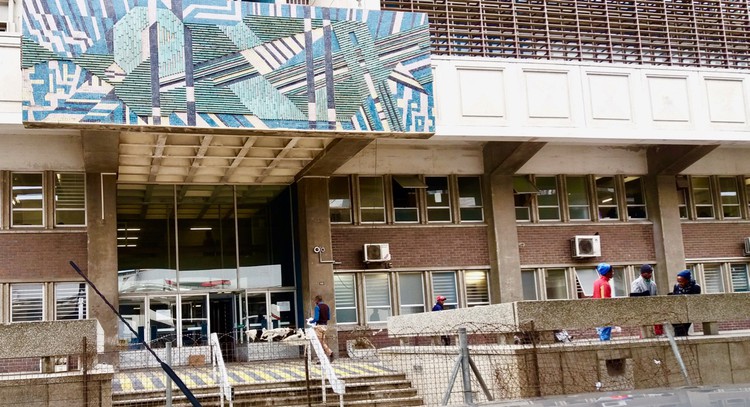Refugees struggle to renew papers at Home Affairs
Asylum seekers from Somalia face unexplained delays and shabby treatment at the foreshore office
A number of refugees from Somalia say they keep getting turned away at the Customs House foreshore offices of Home Affairs when trying to renew their documents. This after they had travelled all the way from Pretoria, since Home Affairs only allows people to renew their documents at the place they first applied for refugee status in South Africa.
Last week, GroundUp met Abdullahi Mumin and a group of Somalis outside the Home Affairs offices. Mumin received refugee status in 2007 and renews every four years. He said this time it was their fourth visit in a month, trying to renew his documents. He had been to the offices on 1 May, told to return on 25 May, which he did, only to be told to return on 1 June, only to be told yet again to return on 9 June. On 9 June, he was told to return on 13 June. Each time officials would scribble the return date on the permit. Mumin now plans to engage a lawyer.
Mumin has a shop to run in Pretoria and the trips to Cape Town cost him business. He said he couldn’t go back without valid documents, because in Pretoria police demanded bribes. His refugee status expired on 31 April.
“If I refuse to pay, they would keep me in a [police] cell for more than three days just to spite me,” he said.
Home Affairs offices open at 8am, but refugees and asylum seekers have learned to start queuing at 6am if they hope to be helped. There are queues for asylum seekers documents renewal, refugees status documents renewal, ID and passport applications. Typically, foreign nationals seeking to renew their papers are required to wait outside. Between 8 and 8:30am, an official collects their papers and takes the paperwork inside. During the course of the day, usually after 2pm, someone from Home Affairs will emerge and call the person. They then find out what the outcome of their application is. Parents or guardians have to bring their minor children as their documents cannot be renewed in their absence. Sometimes women form their own queue, and sometimes they are served first.
Musead Yusuf, who was one of those waiting for his documents to be renewed, got refugee status in 2006. He has travelled from Pretoria to Cape Town four times.
Yusuf translated for another Somali, who did not want to be named. Yusuf said the man’s refugee status document was lost inside the Home Affairs’ office on 1 May after officials collected their papers. When he told the official this, they let him inside and kept him there until 4pm, at which point they told him to leave as they were closing the offices and he should return the next day. When he objected, security removed him.
GroundUp saw a security officer manhandling a Somali man who wanted to enter the offices because he had a query. “If refugees are not allowed to go inside [the office], wouldn’t it proper for security to then call one of the officials to address queries [outside]?” asked the man who was being manhandled.
Home Affairs spokesperson Thabo Mokgola said the department is investigating Munim’s case and will give a response once the investigation is complete.
© 2017 GroundUp. 
This article is licensed under a Creative Commons Attribution-NoDerivatives 4.0 International License.
You may republish this article, so long as you credit the authors and GroundUp, and do not change the text. Please include a link back to the original article.



